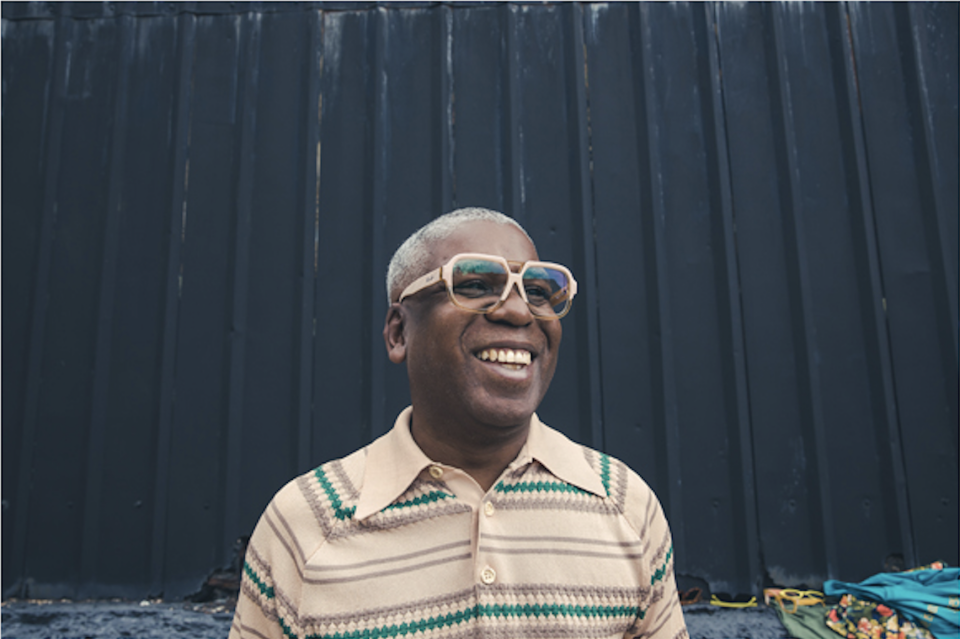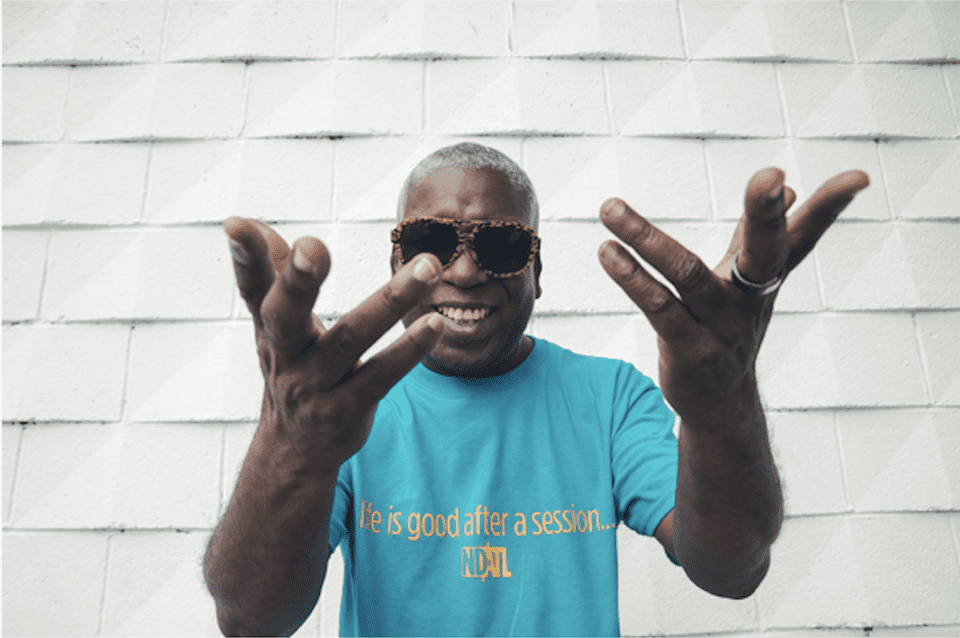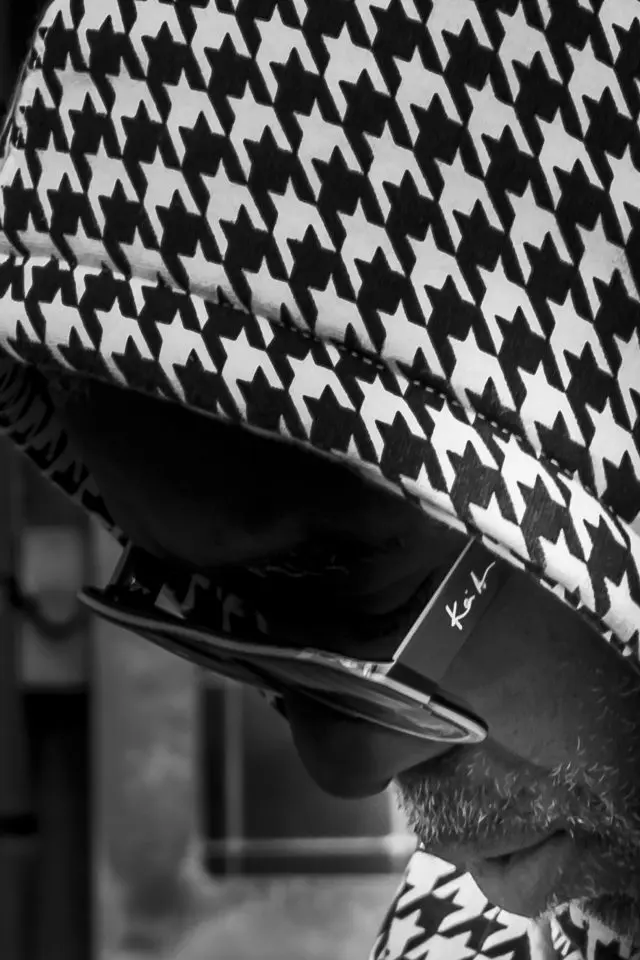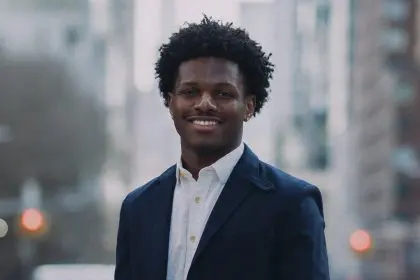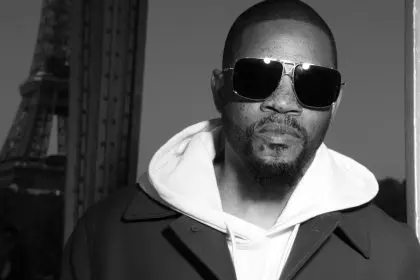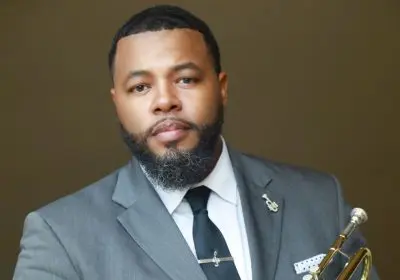Born in New York and shaped by the musical landscapes of Detroit and Atlanta, Kai Alcé stands as a cornerstone figure in American dance music. From his early days at Detroit’s legendary Music Institute to founding the now 15,000-strong House in the Park festival in Atlanta, Alcé has dedicated his life to preserving and evolving house music culture. His label NDATL—named for the three cities that shaped him: New York, Detroit, and Atlanta—has become a sanctuary for authentic dance music, featuring legends like Larry Heard and Theo Parrish. In this interview with Munson Steed at Star Studio, Alcé shares insights on house music’s origins, the importance of mentorship, and maintaining artistic integrity in an evolving industry.
[Editor’s note: This is a truncated transcribe of a longer video interview. Please see the video for the extended version. Some errors may occur.]
For all those who really don’t understand what house music is, give us a short historical view of house and how it came to be the ear candy that you’re known for.
Prior to me, in New York and probably just in the Midwest in general, amongst the Black and gay scenes, it just kind of evolved out of those people not being accepted in different clubs, such as some of the more popular places. So, you know, like Mancuso, Nicky Siano—these kinds of people in New York started all these parties. And within that culture, house music became what it is…
If someone is getting ready to come to one of your sets, how should they open their mind when they step into your set?
I’d say just come with an open mind and get ready to dance. I like to incorporate a lot of classic dance music with new stuff and keep it very organic. It’s always been inviting. Even my parents, though it took them years to warm up to me being a DJ, now when they come and hear me, they see the influence and how I was raised. They can appreciate it now.
Did you ever imagine the influence a DJ could have? You’re almost like a doctor for the soul. Did you know you were stepping into such a transformative role when you got into this business?
A doctor? No. But I knew I was learning from some doctors. Once I got to Atlanta, having been born in New York and raised in Detroit, I was able to use what I learned from both cities to flourish in Atlanta. I stuck to my lane. Atlanta never really had a lot of house music, so by sticking to my guns and feeding off my environment, I slowly realized this was what I was meant to do.
For young DJs who stand next to someone like yourself, how do you listen to the greats? How did you learn from their sets?
Different DJs had different approaches. I got my idea of taking people on a smooth journey—taking them up and down—from Frankie Knuckles. He was probably my main teacher on that level. Derrick May from Detroit taught me more about energy and unique sounds. Ron Hardy from Chicago was great at clearing the board and moving to another feeling while keeping the energy alive. Back then, DJs were often far off in a booth, so you were immersed in the crowd. I was not only enjoying the moment but also paying attention to what they were doing with the records. With vinyl, you had to really pay attention to both the crowd and your music.
When you think of a city like New York, what do you take from there every time you perform?
New York has always been the grandest platform, the place where things are presented the best. But cities like Chicago and Detroit were the incubators of the sounds that became house music. New York probably just was the best at presenting it. So, places like the Paradise Garage—they were the places that had the best sound systems, maybe the best crowds. But without experiencing places like the Music Box and, you know, the Music Institute in Detroit, these were the incubators of the sounds that would eventually become house music.
Now that you’ve learned and you go back to present, how do you bring that feeling to life?
I think most of that comes with the curation of the music that I intend to present. A lot of people figure like DJs are only working when they’re behind the booth, but that’s far from the truth. You’re always constantly taking in music, feeding yourself, deciding, “No, I don’t want to play that,” or, “This is not for me,” or, “This is not what I’m going to play.” I think that just comes with experience and knowing yourself. There are times when you’ll hear songs that tons of DJs are playing, and it works. The crowds go wild for them. But sometimes, for myself, I just say, “I don’t want to play that,” or, “I don’t need to play that,” because so many other people are playing it. So, what do I do to fill that space? I find something that’s more uniquely me. That way, when people are in another room or somewhere else, and they hear me play, they’ll be like, “Oh no, that’s Kai playing.”
What are three records you’ve created that people should know about and why?
One would be “What Am I Here For?”—a remix I did for the Dangerfield Newbies, a band from Atlanta. I’m pretty sure you’re familiar with Jamal Ahmad. Jamal, Mark, and their singer had me do a remix for them. Since they’re Atlanta hometown favorites, Jamal called me up, and everything kind of just worked out perfectly. It was like the moons and the planets were aligned. I worked on the remix with Chris Irvin, a keyboardist, and I think it’s a great representation of what I want to present to the world. Another one would be “Into Your Story,” which was a remix I did for my friend Sam Rivers, who goes by Riverside, along with Jeremy Ellis from Michigan. Jeremy is an MPC wizard, but he also did vocals for the track. I remixed it, and it turned out to showcase where I’m coming from musically. Lastly, maybe my first record, “Power Through,” would be the third. It represents my humble beginnings in production. After DJing for so many years, I decided to start my own record label, and “Power Through” was one of my first productions. I had a friend, Azulu Phantom, sing on it. Those three records, I think, give you a good idea of what you might get from Kai Alce.
When you go home to Detroit, what’s the feeling like?
It’s always love. Coming home means appreciation and connection. Everybody wants to see you. When people know I’m coming, they’re like, “Kai’s back at the crib!” It’s that energy of family and home. This weekend, I’m excited to play with Drake and Kareem, another hometown favorite and hero who’s had an amazing career. I’ve also played the festival a few times, and I host a party every year during the festival called “Deep Detroit.” It’s a celebration of classic Detroit talent, but I also try to include a new talent—hopefully from Detroit, but sometimes from other places. It’s always about the D.
Let’s talk about the brotherhood and sisterhood of DJs. With recent losses like Clark Kent, how would you describe that brotherhood as you move from city to city?
Hip-hop is a little bit more worldwide and widely accepted. But definitely with us, as Black brothers within this dance industry, when we see each other, yeah, it’s always love. Whenever we’re passing through an airport in Amsterdam or France or Paris, whenever we see each other, it’s always just a feeling of acceptance and also like, “I’m glad that you’re still out here doing it and representing for us.” And there’s always an appreciation. You brought up Clark Kent. I saw Rich Medina not too long ago, and we were talking about those times. You know, when I was at Morehouse, Clark Kent used to play a lot at the Plastic parties. Now, being friends with Rich and able to speak on that history, it just kind of shows the lineage. The brotherhood doesn’t fade—it stays strong. And when we lose people like Clark Kent, it tends to make our brotherhood even stronger.
For young DJs who are really trying to be entrepreneurial, what would the tips be about how to build your business as a young DJ and build your sound and your professionalism at the same time?
It can be hard now because there’s so much more to being a DJ today. There’s the social media aspect. There’s branding. There’s self-promotion. There’s this, there’s that. Whereas in our day, promoters handled promoting. We could focus on the music. Now, DJs have to put on multiple hats as well as take care of their business. And you know, business is something that a lot of artists usually are not great at. We always hear about artists becoming famous and ending up broke. With DJs, those same rules apply. So, for me, I say find your lane and go 100% at it. Don’t try to follow anyone or ask people to put you on because if someone puts you on, they can also take you off. If you put yourself on, you answer to no one. It’s about staying in your lane and focusing.
